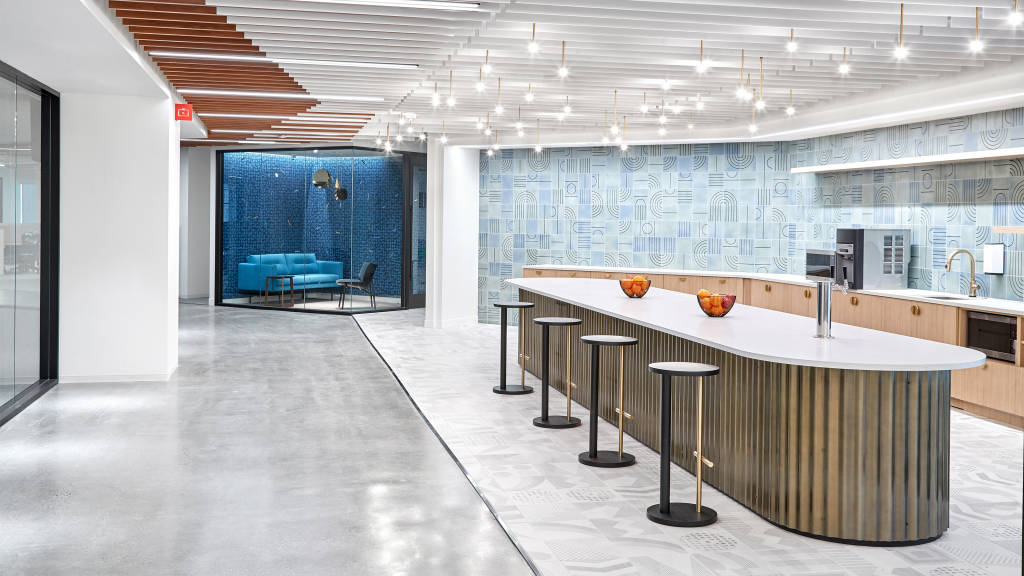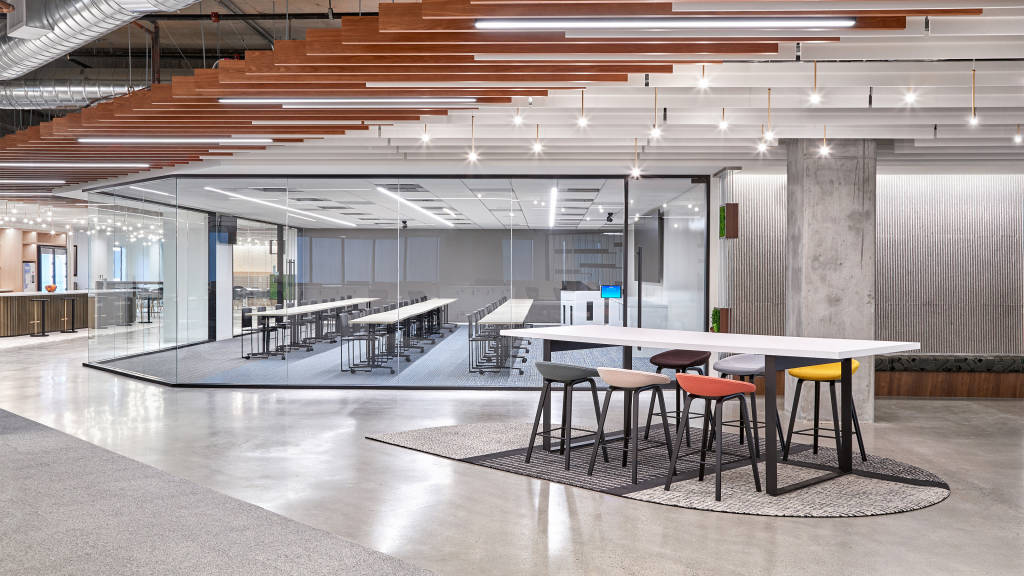How DoorDash Curates Moments That Matter
Intentional design and listening to people’s needs can shape a culture for the better
The ‘Great Resignation’ and stresses of the pandemic have fundamentally changed how and where we work, creating a new imperative for company and HR leaders to find ways to better support their people in the office.
Dr. Tracy Brower, vice president of Workplace Insights at Steelcase, recently sat down with Katy Shields, DoorDash’s People Organization leader, to find out how the role of HR is evolving to more heavily influence the employee experience. While DoorDash’s well-known ‘Dashers’ are private contractors, the conversation focused on DoorDash employees who support that army of more than 1 million people (on average) who Dash every month.
Dr. Tracy Brower: In what ways have your perspectives on work experience and worker experience shifted over the last couple of years?
Katy Shields: Our whole lives have been turned upside down so I’ve grown to embrace flexibility. We need to provide more choice for employees around how they engage and how they can be more productive. I believe in a higher ownership culture and so does DoorDash, so I think if you start assuming that people know what’s best for them and you trust them to do the job, you’ll have better outcomes. We trust people to work in the way that’s going to be best for them. I think the future is absolutely flexible when it comes to work and I do think that in-person collaboration matters – we’re going to curate moments that matter in person to drive that connectivity to our mission, our vision and our people.
TB: As you think about employees, how have their expectations changed over time?
KS: I think employees look for more from their employers than they did perhaps five, 10 or 15 years ago, and I think that’s really healthy. This younger generation, especially, wants cultural alignment between their values and the company’s values. Companies have to be really selective about what the company stands for and it needs to be really authentic.

TB: How do you think “place” supports the value of face-to-face collaboration at DoorDash?
KS: I think it’s unique to every person on a day-to-day basis. But when you think about those curated moments that matter, it’s about putting people into a place that makes them feel comfortable, valued and evokes an emotion. That idea informed a lot of our thoughts when it came to designing DoorDash’s offices. How do we enhance creativity? How do we provide space for community? How do we provide those “run-ins” in the hallway that can be really meaningful? One thing we learned is we need to listen to employees. We send out a quarterly survey that asks about our people’s direct experience as an employee. What we hear from people is that physical space matters, but primarily for those “aha moments” that matter – those curated experiences.
TB: How has your office changed to meet that?
KS: We’ve been redesigning our spaces to listen to our employees. Seventy-five percent say they want to come in for those big meetings, or social events. So that meant we needed fewer dedicated desks. We needed a better mix of small and big conference rooms. We needed casual places for people to get together. We’re also rooted in the communities where we’re located. For instance, in San Francisco, we have dedicated floors that represent moments that matter to San Francisco. The design and flow of the office evokes this feeling of jazz which is aligned with the character of the city.
We wanted people to feel comfortable and alive, so you have to ask yourself: how do you design for that?
Katy Shields DoorDash

TB: As an HR leader, what are the issues that are top of mind for you right now?
KS: Burnout is a very real issue across the industry – especially for those of us in hyper growth organizations. People are tired of the pandemic and are feeling some pressure financially because of inflation and the economy. My advice to leaders during this time of uncertainty is to lead from the front, and stay rooted in building for your customer – which is your team and the broader employee base. When things feel hectic or out of control, make sure you are in front of your organization, centering your team on the vast number of things we do have control over. How we serve our customers, how we build our business, how we treat each other, the culture that we build. There are the known unknowns, and there’s what we know to be true. Identify those things, then be a chief repeating officer – hitting the street, connecting with people and making yourself available to them.
TB: You say leaders should talk to their teams repetitively. What does that mean?
KS:It’s about staying close to your team as a servant leader. We’re here to make sure our teams have what they need to be successful. One way I can do that is help build for their unique needs. Not what I think is best, but through listening to our team and designing solutions that will meet their needs. Another area I make top of mind is setting a fast pace of execution and celebrating progress –– doubling down on the daily, weekly, monthly, quarterly wins. Positive reinforcement drives momentum. Even small wins have huge compounding effects over time.
TB: How has the role of HR changed in the past few years?
KS: HR leaders are driving more of how the company operates – not just HR programs and policies. We’re conduits between the organization and our people. HR is one of the only teams that touches the employee life cycle when it matters most – when you’re thinking about joining a company, your first impression, onboarding, promotions, rewards, good and bad experiences – there’s HR. We get to shape that employee experience and be conduits across the company to relay those insights and to foster our culture in the right way. I believe a big part of that is understanding that place matters. My advice is: be intentional with why you’re building a physical space. When asking people to come into the office, that bar should be very high – it’s not enough to just check a box. It should be for those curated moments that matter.
 Katy Shields leads the People Organization at DoorDash, where she reports to the CEO and sits on the company’s executive Management Team. Katy oversees DoorDash’s culture and belonging, HR, recruiting, people analytics, talent management and total rewards, global expansion, and People Operations functions. Before joining DoorDash, she spent six years at VSCO, serving as the Chief People Officer and on the company’s executive leadership team. Previously, Katy worked at Google, building teams and launching moonshots at Google X, like Waymo, Loon, Google Glass, and also at Qualcomm, across several HR functions. Katy earned her B.S. in Business Administration from San Diego State University and lives in San Francisco Bay Area with her husband and two children.
Katy Shields leads the People Organization at DoorDash, where she reports to the CEO and sits on the company’s executive Management Team. Katy oversees DoorDash’s culture and belonging, HR, recruiting, people analytics, talent management and total rewards, global expansion, and People Operations functions. Before joining DoorDash, she spent six years at VSCO, serving as the Chief People Officer and on the company’s executive leadership team. Previously, Katy worked at Google, building teams and launching moonshots at Google X, like Waymo, Loon, Google Glass, and also at Qualcomm, across several HR functions. Katy earned her B.S. in Business Administration from San Diego State University and lives in San Francisco Bay Area with her husband and two children.


